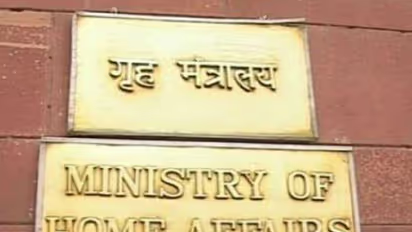
New Delhi: The Ministry of Home Affairs (MHA), which deals with internal security, has topped the list of ministries which rejected RTI applications.
According to the latest report by Chief Information Commissioner (CIC), MHA rejected 15% of RTIs filed by the public to get information. This is almost thrice the average of RTI rejections by Union ministries. The Finance Ministry is at the second position in rejecting RTIs.
Also read: Minorities safer under Modi regime than 10 years of UPA rule, proves RTI
The Central government, in a recent order issued last week, has deputed top two former finance ministry officers - Vanaja Sarna, ex-chief of Central Board of Indirect Taxes and Customs (CBIC) and Dheeraj Gupta, ex-disinvestment secretary, as information commissioners. Interestingly, the defence ministry has rejected only 5% of RTIs filed by the public.
The Ministry of Home Affairs received almost 57,000 RTIs out of which 8,700 were rejected. Similarly, the defence ministry received 80,000 RTIs but rejected only 4,000 requests seeking disclosure of information.
The finance ministry received maximum number of RTI requests, almost 2 lakh in the year 2018 out of which 28,000 were rejected under various sections of RTIs.
According to the report, in 51% cases of rejection, the reason for rejecting disclosure of information is Section 8(1). This section is being used by the government when information can affect country's security, economic interest, trade secrets, etc.
On the other side, the railways ministry and ministry of housing and urban affairs rejected minimum requests under the RTI Act. Both the ministries rejected less than 1% of total RTIs received by them.
The report also revealed that in 2018 more than 14 lakh RTIs were filed in comparison to 2017 when government offices had received almost 11 lakh RTIs.
"RTI applications received increased by 34.67% during the reporting year in comparison to the previous year 2016-17," the report said.
"The reason for highest number of RTIs rejected by the MHA is because of the subjects it deals with. Internal security is highly secret in nature and 70% of information can't be disclosed as it can be misused," an MHA official said.
Section 8(1), which was used in 51% of rejections, exempts, “Such information from disclosure which affects, the sovereignty and integrity of the country as also its security and strategic, scientific or economic interest, commercial confidence, trade secrets, or intellectual property, or those which are expressly forbidden to be published by any court of law / tribunal or which may constitute contempt of court, as also such information causing breach of privilege of Parliament or the State Legislature, or those available to a person in his fiduciary relationship, or those received from foreign Government, those disclosures which would endanger the life of physical safety of a person, or those which would impede the process of investigation and finally Cabinet papers including deliberations of Council of Ministers, Secretaries, Officers.”